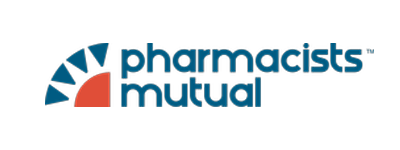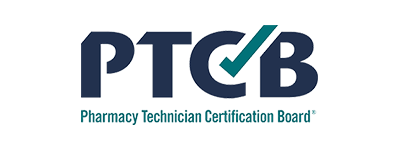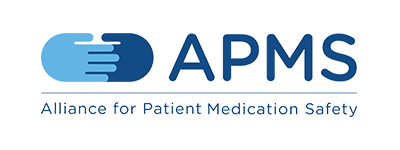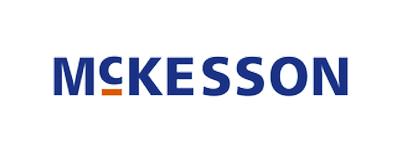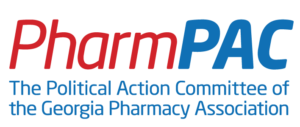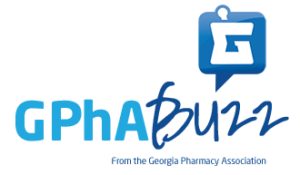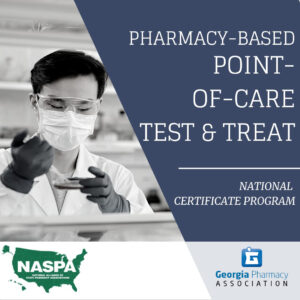NASPA Pharmacy-based Point-of-Care Test & Treat Certificate Program
Point-of-care testing empowers clinicians to use effective, fast technology to aid their decision making at the “point-of-care” to improve patient health. Pharmacy-based point-of-care testing utilizes CLIA-waived (Clinical Laboratory Improvement Amendments -waived) tests that offer near immediate results in non-laboratory settings. Pharmacists and pharmacies are increasingly offering this public health service to promote prevention, early detection, treatment and disease management.
Nothing in this program shall constitute legal advice, and pharmacists are advised to seek legal counsel prior to undertaking a point-of-care testing program in their pharmacy or entering into any collaborative practice agreements.
Registration Rates
GPhA Member Pharmacist: $349
Non-Member Pharmacist: $499*
GPhA Member Technicians: $199
Non-Member Technicians: $249*
*Non-member rate includes a full GPhA Membership through August 31, 2023 for all pharmacists and pharmacy techs residing in the state of Georgia.
Our Faculty
Johnathan Hamrick, PharmD
Lead Network Facilitator for CPESN Georgia

Johnathan Hamrick is a 2010 graduate of Mercer University College of Pharmacy.
In October 2004, Johnathan’s pharmacy journey started at Adams Drug Store in Cordele, where he served as a delivery driver and pharmacy technician. After earning his PharmD, Johnathan became a pharmacist in charge at Kenmar Pharmacy in Marietta, where he helped establish and operate its travel health and immunization clinic. Hamrick also worked as director of introductory pharmacy practice experiences at Mercer University College of Pharmacy, as well as faculty advisor for the NCPA and Kappa Psi chapters; where he taught the communications, IPPE, management, and law courses.
Currently, he is the Lead Network Facilitator for CPESN Georgia and also works as a clinical pharmacist at Poole’s Pharmacy in Marietta, GA. In his role at Poole’s, Johnathan helps oversee the operation of the pharmacy’s travel immunization clinic.
He is a trained instructor for APhA’s Pharmacy-Based Immunization Certificate and NACDS’s Point of Care Testing Certificate programs. Johnathan has been an active member of GPhA since 2006. In 2014, he received the Pharmacist’s Mutual Distinguished Young Pharmacist Award. He is also a past president of GPhA’s Region 5 for which he was named the Mal T. Anderson Region President of the Year in 2017.
Hannah Head, PharmD
Pharmacy Practice Coordinator for 24 stores, The Kroger Company
 Hannah Head is a graduate of Mercer University, class of 2009 and currently resides in Kathleen, Georgia. Hannah grew up in her grandfather’s independent pharmacy in Byron, GA and dreamed of becoming a pharmacist from the age of 8 years old. Her career in pharmacy began at the age of 14, as a cashier at Brandon Discount Drugs in Mississippi. After earning her PharmD, Hannah has served in several roles with The Kroger Co. Currently, she is Pharmacy Practice Coordinator for 24 stores in the middle Georgia area.
Hannah Head is a graduate of Mercer University, class of 2009 and currently resides in Kathleen, Georgia. Hannah grew up in her grandfather’s independent pharmacy in Byron, GA and dreamed of becoming a pharmacist from the age of 8 years old. Her career in pharmacy began at the age of 14, as a cashier at Brandon Discount Drugs in Mississippi. After earning her PharmD, Hannah has served in several roles with The Kroger Co. Currently, she is Pharmacy Practice Coordinator for 24 stores in the middle Georgia area.
Hannah is licensed to practice pharmacy in Georgia and Alabama. She is a trained instructor for APHA’s Pharmacist and Patient-Centered Diabetes Care Certificate, NACDS’s Point of Care Testing Certificate and American Heart Association’s Basic Life Support programs.
Hannah has served on Mercer University’s Alumni Board of Directors since 2017. She has been an active member of Georgia Pharmacy Association since 2005. She served as Region 6 President from 2014-2017. She is currently serving as AEP Chair. She is a 2015 Leadership GPHA graduate and recipient of the Distinguished Young Pharmacist Award in 2018.
Activity Description

The NASPA Pharmacy-based Point-of-Care Test & Treat National Certificate Program provides an opportunity to gain the skills and information necessary to develop a testing program such as influenza, Group A Streptococcus, HIV, Hepatitis C, coronaviruses, and chronic diseases. The target audience for the certificate program is pharmacists, pharmacy technicians, student pharmacists, academia, and pharmacy association staff. While the program is primarily designed for pharmacists, non-pharmacists interested in point-of-care test and treat are also welcome to complete the program.
The 20-hour ACPE-accredited certificate program includes comprehensive material regarding key disease states, physical assessment, point-of-care tests and treatment, and business models through:
- 16 hours of home study
- 4 hours of live training
Participants take an online assessment after each of the 12 modules of home study, in addition to a cumulative assessment (must pass 70% within three attempts), and then their proficiency to conduct physical assessments and offer point-of-care testing services is assessed in the live/virtual training. Upon successful completion of both portions of the program and all program evaluations, participants are awarded a certificate of completion and pharmacists can receive 20 hours of Continuing Pharmacy Education (CPE) credit.
Learning objectives
At the completion of this activity, the pharmacist will be able to:
- Identify opportunities for expanding patient-centered services in pharmacy settings, using point-of-care testing and treatment.
- Discuss the value and limitations of patient reported symptoms, medical history, and drug allergies.
- Describe and perform the following physical assessments, when appropriate to patient care: Blood Pressure, Pulse, Respiratory Rate, Oxygenation, and Cervical Lymph Node Inspection
- Describe and perform the following specimen collections used in point of care testing: Throat swab, and Nasal swab
- Identify characteristics of exemplar infectious diseases (e.g. influenza, Group A Streptococcus, Human Immunodeficiency Virus, Hepatitis C, Coronaviruses) regarding: Causative agents, Transmission, Immunizations, Symptoms and Presentation, Appropriate treatment, Point-of-Care testing.
- Define and contrast the following terms as they relate to point-of-care testing in pharmacies: CLIA, CLIA-waived, Collaborative Agreement, Protocol, Prescribe, Diagnose.
- Explain the value and limitations of Point-of-Care Tests, including rapid diagnostic tests, and list the steps a pharmacist can take to improve test performance.
- Apply all information to patient-specific cases based on common pharmacy-based patient interaction.
At the completion of this activity, the pharmacy technician will be able to:
- Identify opportunities for expanding patient-centered services in pharmacy settings, using point-of-care testing and treatment.
- Discuss the value and limitations of patient reported symptoms, medical history, and drug allergies.
- Describe and perform under the supervision of a pharmacist the following physical assessments, when appropriate to patient care: Blood Pressure, Pulse, Respiratory Rate, Oxygenation, and Cervical Lymph Node Inspection
- Describe and perform the following specimen collections used in point of care testing: Throat swab, and Nasal swab
- Identify characteristics of exemplar infectious diseases (e.g. influenza, Group A Streptococcus, Human Immunodeficiency Virus, Hepatitis C, Coronaviruses) regarding: Causative agents, Transmission, Immunizations, Symptoms and Presentation, and Point-of-Care testing.
- Define and contrast the following terms as they relate to point-of-care testing in pharmacies: CLIA, CLIA-waived, Collaborative Agreement, Protocol, Prescribe, Diagnose.
- Explain the value and limitations of Point-of-Care Tests, including rapid diagnostic tests.
CPE credit: home study plus live training
This course offers 20 hours of ACPE CE (16 home study, 4 live training)
Students take an online assessment after each of the 12 modules of home study, in addition to a cumulative assessment (must pass 70% within three attempts), and then their proficiency to conduct physical assessments and offer point-of-care testing services is assessed in the live training. Upon successful completion of both portions of the program and all program evaluations, participants are awarded a certificate of completion and can receive 20 hours of Continuing Pharmacy Education (CPE) credit.
Please CLICK HERE for a detailed outline of all 12 modules.
Target Audience
This course provides pharmacists, pharmacy technicians, and student pharmacists with the skills necessary to develop a testing program for influenza, Group A streptococcus, HIV, hepatitis C, and Coronavirus.
ACPE accreditation info
Michigan Pharmacists Association is accredited by the Accreditation Council for Pharmacy Education as a provider of continuing pharmacy education. The home study portion of the program is approved for 16 contact hours and the live training is approved for 4 contact hours of continuing pharmacy education credit. Credit is only awarded for completion of the entire 20 contact hour program. Credit must be claimed within 30 days of completing the program.
Community Pharmacy-based Point-of-Care Testing Certificate Program
ACPE Universal Activity #0112-0000-22-200-B04-P/T
Activity Type: Practice-based
Target Audience: Pharmacists and pharmacy technicians in all practice settings
Release Date: January 3, 2022
Expiration Date: January 3, 2025
Contact Hours: 20.0
Cancellation policy
No refunds are available for this program. Should GPhA cancel your specific program, you will have an opportunity to transfer your registration to another available date.
If you need to cancel your registration, please notify Mary Ritchie in writing immediately. No refunds will be given due to registration cancellation, but timely notification of a cancellation may allow another person to participate in your place.
Claiming credit
Continuing pharmacy education (CPE) credit will be awarded for the certificate training course only. This is a Certificate Program and is primarily constructed to instill, expand or enhance practice competencies through the systematic achievement of specified knowledge, skills, attitudes and performance behaviors.
Successful completion of the live/virtual seminar component involves passing the final exam with a grade of 70 percent or higher and demonstrating proficiency in diagnostic testing techniques. Successful completion of the self-study component involves passing the self-study assessment questions with a grade of 70 percent or higher. Credit is only awarded for completion of the entire 20 contact hour program. Credit must be claimed within 60 days of completing the program (no exceptions). Attendance and participation are required before obtaining CPE credit. Partial credit will not be awarded.
CPE Monitor, is a national, collaborative effort by the Accreditation Council for Pharmacy Education (ACPE) and the National Association of Boards of Pharmacy (NABP) to provide an electronic system for pharmacists and pharmacy technicians to track their completed PCE credits. This system allows pharmacists and pharmacy technicians to log into a comprehensive electronic profile to access information about their completed CPE. All ACPE-accredited providers will be required to use this system. CPE Statements of Credit will no longer be mailed.
All continuing education credits provided by the Michigan Pharmacists Association (MPA) will be uploaded to the CPE Monitor by Lecture Panda. Lecture Panda is a platform that MPA utilizes to submit your CPE credits. You can access all certificate program materials – learning modules, PowerPoint slides, additional learning materials, assessments, and evaluations in this platform. As soon as you complete your evaluation and other instructions, it is validated and automatically sent to CPE Monitor for accreditation so there is no wait time to receive credit. After CPE credits are processed by ACPE and NABP, pharmacists and pharmacy technicians are able to log into their NABP e-Profile and view all of their completed ACPE-accredited CPE credit.
In order to process CPE credits, please provide Lecture Panda with your correct NABP e-Profile ID number and your birth month and day (MMDD format). The NABP e-Profile ID number is currently a 6-digit number, and it is not your license number or NPI number. If you need to verify the number or have not yet registered for one, visit www.MyCPEMonitor.net as soon as possible.

